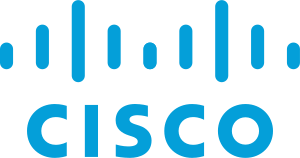Cisco 210-065 CIVND: Implementing Cisco Video Network Devices Online Training Course
Learning 247
Summary
- Exam(s) / assessment(s) not included in price, and must be purchased separately
Add to basket or enquire
Overview
This course provides students with the necessary knowledge to describe and implement Cisco Video solution architectures including Cisco Tele-Presence products, video based end-points, and digital media platform including digital media players for small to medium size businesses. This course was designed as the second part of a two part series on Cisco Collaboration technologies which are designed to provide students with the necessary information to earn a CCNA Collaboration certification.
Certification
Cisco Certified Network Associate Video (CCNA Video) Designed to provide students with the necessary information to earn a CCNA Collaboration certification.
Description
Part 1: Cisco Video Components And Architectures
Module 1: Cisco Video And Content Delivery
- 1.1 Cisco Video And Content Delivery Part 1
- 1.2 Cisco Video And Content Delivery Part 2
- 1.3 Cisco Video And Content Delivery Part 3
Module 2: Cisco Video Surveillance
- 2.1 Cisco Video Surveillance Part 1
- 2.2 Cisco Video Surveillance Part 2
Module 3: Cisco Collaboration
- 3.1 Cisco Collaboration Part 1
- 3.2 Cisco Collaboration Part 2
- 3.3 Cisco Collaboration Part 3
Module 4: Central Collaboration Endpoint Control
- 4.1 Central Collaboration Endpoint Control
Part 2: Unified IP Phones, Desk Endpoints And Cisco Jabber
Module 5: Unified IP Phones, Desk Endpoints And Cisco Jabber
- 5.1 Unified IP Phones Desk Endpoints And Cisco Jabber
Module 6: Configuring Unified IP Phones And Cisco Jabber
- 6.1 Configuring Unified IP Phones And Cisco Jabber Part 1
- 6.2 Configuring Unified IP Phones And Cisco Jabber Part 2
Module 7: Operating And Troubleshooting Cisco Unified IP Phone Snd Cisco Jabber
- 7.1 Operating And Troubleshooting Cisco Unified IP Phone And Cisco Jabber Part 1
- 7.2 Operating And Troubleshooting Cisco Unified IP Phone And Cisco Jabber Part 2
- 7.3 Operating And Troubleshooting Cisco Unified IP Phone And Cisco Jabber Part 3
Part 3: Cisco Telepresence Endpoints
Module 8: Cisco Telepresence Endpoints Installation And Characteristics
- 8.1 Cisco Telepresence Endpoints Installation And Characteristics Part 1
- 8.2 Cisco Telepresence Endpoints Installation And Characteristics Part 2
- 8.3 Cisco Telepresence Endpoints Installation And Characteristics Part 3
- 8.4 Cisco Telepresence Endpoints Installation And Characteristics Part 4
Module 9: Configuring Cisco Telepresence CTS And Cisco DX650 Endpoints
- 9.1 Configuring Cisco Telepresence CTS And Cisco DX650 Endpoints Part 1
- 9.2 Configuring Cisco Telepresence CTS And Cisco DX650 Endpoints Part 2
Module 10: Configuring Cisco Telepresence TC Endpoints
- 10.1 Configuring Cisco Telepresence TC Endpoints Part 1
- 10.2 Configuring Cisco Telepresence TC Endpoints Part 2
- 10.3 Configuring Cisco Telepresence TC Endpoints Part 3
- 10.4 Configuring Cisco Telepresence TC Endpoints Part 4
- 10.5 Configuring Cisco Telepresence TC Endpoints Part 5
- 10.6 Configuring Cisco Telepresence TC Endpoints Part 6
Module 11: Operating And Troubleshooting Cisco Telepresence Endpoints
- 11.1 Operating And Troubleshooting Cisco Telepresence Endpoints Part 1
- 11.2 Operating And Troubleshooting Cisco Telepresence Endpoints Part 2
- 11.3 Operating And Troubleshooting Cisco Telepresence Endpoints Part 3
- 11.4 Operating And Troubleshooting Cisco Telepresence Endpoints Part 4
- 11.5 Operating And Troubleshooting Cisco Telepresence Endpoints Part 5
Part 4: Multipoint Conferencing
Module 12: Cisco Multipoint Conferencing Solutions
- 12.1 Cisco Multipoint Conferencing Solutions Part 1
- 12.2 Cisco Multipoint Conferencing Solutions Part 2
- 12.3 Cisco Multipoint Conferencing Solutions Part 3
Module 13: Configuring And Monitoring Cisco Multipoint
- 13.1 Configuring And Monitoring Cisco Multipoint Part 1
- 13.2 Configuring And Monitoring Cisco Multipoint Part 2
Part 5: Cisco Digital Media Players
Module 14: Cisco DMP Characteristics And Installation
- 14.1 Cisco DMP Characteristics And Installation Part 1
- 14.2 Cisco DMP Characteristics And Installation Part 2
Module 15: Configuring Cisco DMPs
- 15.1 Configuring Cisco DMPs
Module 16: Managing Cisco Edge 340 DMPs
- 16.1 Managing Cisco Edge 340 DMPs
- 16.2 Course Conclusion
Module 17: Labs
- 17.1 Basic Switch Port Configuration
- 17.2 Dashboard Options Part 1
- 17.3 Dashboard Options Part 2
- 17.4 Preparations For Endpoints Part 1
- 17.5 Preparations For Endpoints Part 2
- 17.6 Preparations For Endpoints Part 3
- 17.7 Preparations For Endpoints Part 4
- 17.8 Basic Troubleshooting
- 17.9 Setup TC Endpoint Part 1
- 17.10 Setup TC Endpoint Part 2
- 17.11 Setup TC Endpoint Part 3
- 17.12 Setup TC Endpoint Part 4
Questions and answers
Currently there are no Q&As for this course. Be the first to ask a question.
Reviews
Currently there are no reviews for this course. Be the first to leave a review.
Legal information
This course is advertised on reed.co.uk by the Course Provider, whose terms and conditions apply. Purchases are made directly from the Course Provider, and as such, content and materials are supplied by the Course Provider directly. Reed is acting as agent and not reseller in relation to this course. Reed's only responsibility is to facilitate your payment for the course. It is your responsibility to review and agree to the Course Provider's terms and conditions and satisfy yourself as to the suitability of the course you intend to purchase. Reed will not have any responsibility for the content of the course and/or associated materials.


